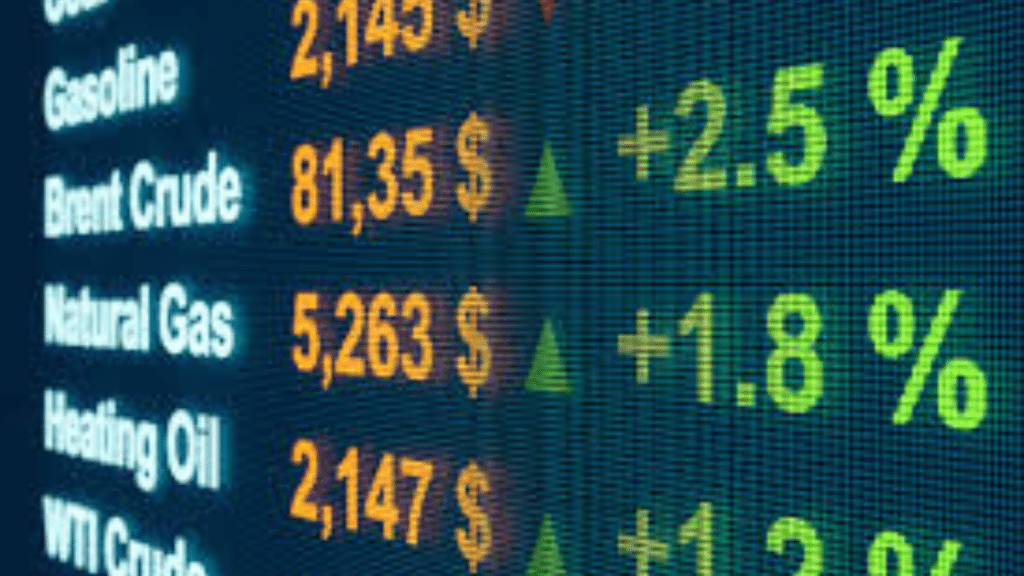The commodity market is fundamentally important all over the world. It’s where raw materials and primary products are bought and sold, and its influence extends far beyond just traders or investors. Whether it’s the gold you wear, the oil in your car, or the wheat in your bread—many daily essentials are tied to movements in the commodity market. Understanding how this market functions is essential for anyone interested in investing, trading, or simply knowing how pricing in the economy works.
Traditionally, commodity trading was limited to large institutions, exporters, and industrial players. However, technological advancements have opened the gates to retail investors. Now, even individuals can access the market through a commodities market app, making trading and investing in commodities more accessible than ever.
Commodities may broadly be divided into two broad categories: hard commodities and soft commodities. Hard commodities include the natural resource such as gold, silver crude oil and metals. Commodities that are soft include agricultural commodities like wheat, cotton coffee and livestock. These commodities are traded either in the spot market (where the transaction is settled instantly) or the derivatives market (which includes futures and options contracts for future delivery).
In India commodity trading is governed and enabled by commodity trading exchanges like the Multi Commodity Exchange (MCX) and National Commodity and Derivatives Exchange (NCDEX).These platforms serve as centralized marketplaces a place where buyers and sellers trade standardized contract in a regulated setting.
Key Features of the Commodity Market
The commodity market functions similarly to equity markets in many ways but has its own unique characteristics. Here we see a few of its signatures:
1. Standardized Contracts
Commodities are traded using standardized contracts. This means the quantity, quality, and delivery terms are predefined, which helps in maintaining uniformity and reduces disputes between buyers and sellers.
2. Price Discovery
Commodity exchanges allow price discovery on real-time basis, demand and supply. Factors such as weather, geopolitical tensions, and currency fluctuations can all influence prices.
3. Leverage
Most commodities are traded with a margin system, allowing traders to take large positions with a small initial deposit. Although this leverage may increase profits, it will also increase the dangers of loss.
4. Hedging Opportunities
The market is not just for speculation. Businesses, such as farmers or oil companies, use it to hedge against price fluctuations and reduce financial risk.
5. Global Impact
Commodity prices are often globally linked. For instance, a drought in Brazil might impact global coffee prices. Hence, geopolitical and environmental factors can have a direct effect on commodity prices.
Types of Commodities Traded
Here’s a quick breakdown of the most commonly traded commodities:
a. Metals
Gold, silver, copper, aluminum, and zinc are among the most popular metals traded. Gold, in particular, is considered a safe-haven asset during economic uncertainties.
b. Energy
Crude oil, natural gas, and coal fall under this category. Energy commodities are very volatile and highly affected by the geopolitical incident and levels of their production.
c. Agriculture
This includes wheat, rice, sugar, cotton, coffee, and spices. Agricultural commodities often see seasonal and weather-driven price changes.
d. Livestock and Meat
Although not very prominent in India, in global markets, livestock like cattle and pigs are also actively traded commodities.
How Commodity Trading Works
Trading in commodities can be done through:
– Futures Contracts
A futures contract is an agreement for purchasing or selling a commodity at an agreed price on a future date. These are the most prevalent instruments in the markets of commodities.
– Options on Commodities
Options vest in the holder a right but no obligation to buy or sell commodity at the agreed price prior to the expiration of the contract.
– Exchange-Traded Funds (ETFs)
Commodity ETFS are fund-based assets which follow the trends of a commodity or a basket of commodities. They are ideal for investors who don’t want to trade futures directly.
– Spot Trading
Less common among retail traders, this involves the immediate delivery and payment of the commodity.
Benefits of Investing in Commodities
- Portfolio Diversification: Commodities usually have a low correlation with traditional assets like stocks and bonds.
- Hedge Against Inflation: During inflationary periods, commodity prices often rise, helping investors protect purchasing power.
- Profit from Volatility: Commodities are highly sensitive to global events, offering opportunities for profit if timed correctly.
Risks Involved
Despite the fact that commodity trading is rewarding, there are risks attached with commodity trading:
- High Volatility: Prices can swing wildly within short periods.
- Leverage Risk: Trading on margin can blow up losses.
- Geopolitical Uncertainty: Political events can lead to unexpected market movements.
- Storage and Delivery Concerns: Though not applicable to all traders, physical settlement may require storage and logistics.
Getting Started with Commodity Trading
If you’re looking to explore this space, here’s how to get started:
- Choose a Reputed Broker or Platform: Ensure the platform is registered with SEBI and offers access to major commodity exchanges like MCX.
- Open a Trading and Demat Account: These are required for holding and transacting contracts.
- Understand the Market: Begin with paper trading or small positions to get a feel of how the market works.
- Use Technology Wisely: A commodities market app can help you track prices, place orders, and get real-time news, right from your phone.
Conclusion
The commodity market is an essential part of the global financial ecosystem, providing opportunities for both speculation and risk management. With the rise of digital platforms and mobile-based solutions, participating in commodity trading has become easier than ever. Whether you’re an individual investor or a business seeking price protection, this market has tools and strategies that can be tailored to your needs.
However, like any financial market, it requires careful research, risk management, and discipline. Leveraging modern tools such as a reliable commodities market app can significantly enhance your trading experience and decision-making.
